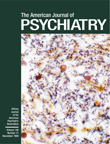Although torture leads to a great deal of physical and mental suffering, there are few publications based on scientific studies on the subject. Psychiatric and medical interest in torture victims is relatively new in spite of recent figures showing the worldwide magnitude of the problem. “An estimated 112 countries practice torture leading to perhaps 400,000 torture survivors in the United States alone.” Interest of physicians in torture grew gradually after World War II, and the organizational medical efforts started many years later, in the 1970s, under the auspices of Amnesty International, a human rights organization whose activities have led to a rise in public awareness. Numerous international declarations and conventions prohibiting human rights violations, however, have not prevented the practice of torture in many countries.
Caring for Victims of Torture is one of the few books published on the scientific investigation of the effects of torture and the treatment of torture victims. Drs. Jaranson and Popkin have done a fine job in collecting into six sections 14 chapters written by physicians, many of whom have been pioneers in this subject.
The first section reviews the historical background and politics of torture, rehabilitation of torture victims, and the prevention of torture. In the first chapter two pioneers, Leo Eitinger and Lars Weisæth from Denmark, emphasize the striking point that medical doctors participate in torture practices. They write, “The extent to which members of the health profession were active participants in torture was shocking.…Medical doctors or other health personnel were present during the administration of torture, directed the intensity, and decided when to continue or stop” (p. 11). Such medically unethical practices show us how important it is to use this knowledge in medical education and in the postgraduate training of physicians at risk. Aranson reviews the “Science and Politics of Rehabilitating Torture Survivors” in chapter 2. This chapter also discusses the efforts in differentiating a specific torture syndrome that has not been validated so far. Clinical studies show that the proposed torture syndrome overlaps with posttraumatic stress disorder.
In section 2, the discussion of the characteristics and definitions of torture, government-supported or not, and the difficulties of studying torture victims is an invaluable source that should be of interest to all medical professionals.
Sections 3 and 4 focus on clinical aspects of assessment and treatment of torture victims, including medical and psychiatric assessment, collaboration between primary care and psychiatry, and specific treatment interventions. Psychoanalytically oriented psychotherapy and psychopharmacological treatments are also discussed. Ba¸soglu, the editor of Torture and Its Consequences (1), another fine book on this subject, deserves a special mention here for his chapter on behavioral and cognitive treatments.
In the study and treatment of torture victims, countertransference feelings and ethical values inevitably influence the researcher or the therapist. The physician’s overinvolvement in the process and identification with the victims need to be recognized in carrying out assessment studies and effective treatments. At times, it may be very difficult if not impossible to remain neutral and passive when one considers the ethical role of the physician and the appalling political forces behind torture practices. These issues are discussed with great sensitivity and knowledge in the chapters in sections 5 and 6.
This book is eloquently written with rich content, with clarity, and with conciseness. Although it has the problems of edited works, such as repetitions in some sections that at times dilute the reader’s interest, it is easy to read. Each chapter brings forth a new idea or knowledge on a worldwide problem that has been ignored and neglected from ancient times to our day. In spite of the many political and social difficulties involved, there is no doubt that significant achievements have been made in the field of working with torture victims; this book is an invaluable testimony of these achievements.

